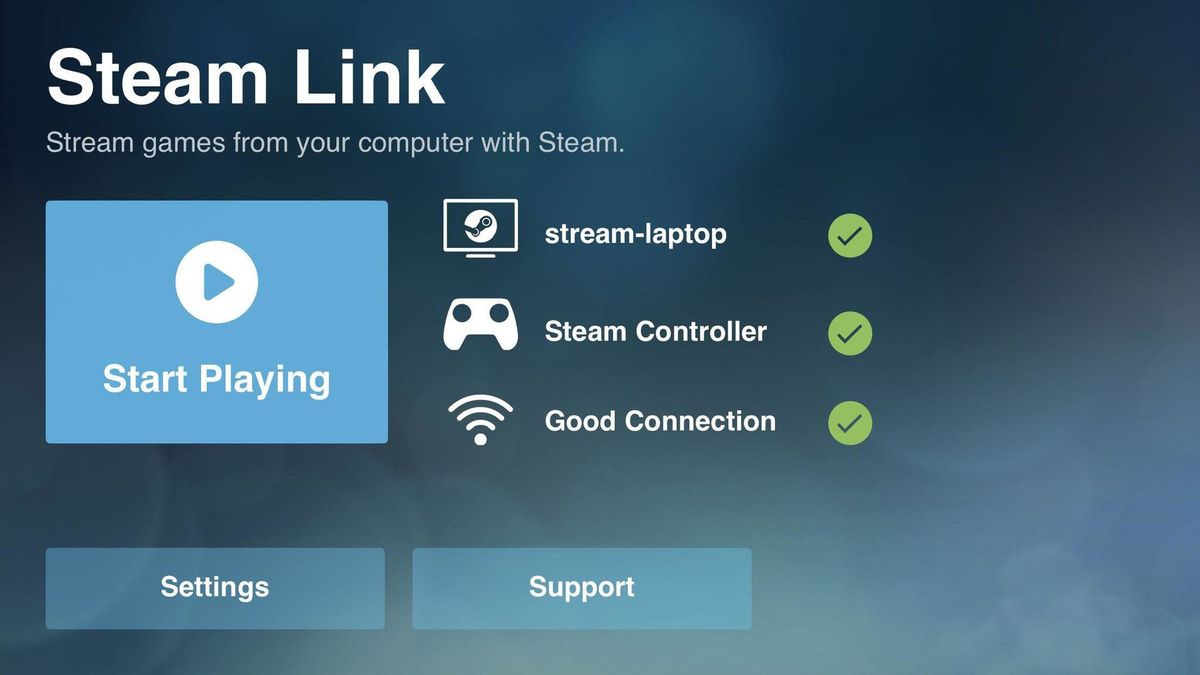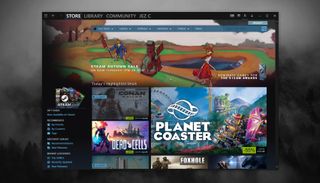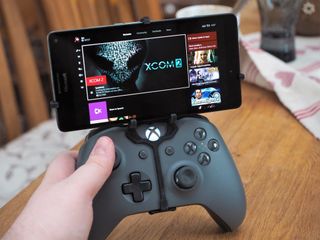What Apple's move to block Steam Link on iOS could mean for Xbox cloud streaming
Apple has blocked Steam Link on iOS, preventing PC gamers from using iOS devices to stream their games over a home network. Does this anti-competitive stance bode ill for Xbox cloud streaming?

Valve released Steam Link for iOS a little while ago, allowing PC gamers to play their games on a compatible iOS device, streamed via their PC on a home network. But Apple didn't like it.
Despite passing through the app review team's checks, the powers that be at Apple struck the app down, citing a potential business conflict. How might this impact other types of game streaming apps, like the long-rumored cloud-based gaming service being built by Xbox? Read on.
Valve and Steam vs. Apple

Valve released a statement (via SteamDB), describing what went down.
On Monday May 7th, Apple approved the Steam Link app for release. On Weds, May 9th, Valve released news of the app. The following morning, Apple revoked its approval citing business conflicts with app guidelines that had allegedly not been realized by the original review team. Valve appealed, explaining the Steam Link app simply functions as a LAN-based remote desktop similar to numerous remote desktop applications already available on the App Store. Ultimately, that appeal was denied, leaving the Steam Link app for iOS blocked from release. The team here spent many hours on this project and the approval process, so we're clearly disappointed. But we hope Apple will reconsider in the future.
Apple's anti-competitive stance on this matter is disappointing, but not unsurprising. Clearly, the company sees the potential for a loss of revenue, because if people can access real games from a PC on their mobile devices they might stop buying the Candy Crush microtransactions that form a huge chunk of Apple's app store revenue.
The oddity here, is, that this is simply a LAN-based home solution. Those gamers who will want this are already core gamers who already own a Steam library and a decent PC rig to run it on. It's unlikely those types of gamers are spending tons of cash on Apple "games" on their phones and tablets anyway. So if Apple is this bullish on a simple LAN-based remote desktop gaming app, how might it react to something like Xbox cloud streaming, or Sony's PlayStation Now?

It's perhaps telling that PlayStation Now isn't already available on iOS. You can achieve remote play for console and PC games in some cases on iOS using third-party solutions like TeamViewer, but there are no official solutions from the big companies.
You have to imagine that Apple might want some form of financial cut to make these features a reality since it effectively allows access to a third-party game store "trojan horse" on Apple's mobile devices. Apple probably looks at the relative openness of Android and Windows with disdain, and perhaps for good reason. Microsoft has no control over the PC games market on its own platform thanks to Steam, and the fact Google's Android platform can be forked led to it completely losing certain markets, notably China, where third-party tech giants like Baidu and Tencent dominate distribution with their own Android app stores.
Get the Windows Central Newsletter
All the latest news, reviews, and guides for Windows and Xbox diehards.
Xbox implications

Where does that leave the Xbox division for its cloud gaming aspirations? It could simply be that Microsoft continues to focus on Android. Redmond is able to get its tendrils into Android far more easily than it can with iOS, because you can change the default launcher, digital assistant, web browser, and more. Of course, there's no reason Google couldn't just block the app, too, but given Google's vast market share, that could raise the eyebrows of regulators, particularly in the EU. Perhaps Redmond simply works with Apple to bring streaming across, even if it means giving a cut of the cash to the company.
In any case, the fact Microsoft that gave up its mobile aspirations once again throws complexity into its plans. If Microsoft managed to establish a phone foothold with Windows when smartphones started to take off, it wouldn't have to rely on iOS and Android to access users on those devices. Valve is also struggling to figure out where it expands now, since it has effectively saturated the PC market, while mobile phones remain an untapped market for core "AAA" games.
Cloud streaming is going to bring huge disruption to the gaming market in the same way Spotify streaming upended music and Netflix streaming is changing the TV landscape. As Amazon and others line up their cloud infrastructure to corner the gaming side of things, it remains to be seen how Valve, and especially Microsoft, will tap the mobile market with their respective game stores.

Jez Corden is the Executive Editor at Windows Central, focusing primarily on all things Xbox and gaming. Jez is known for breaking exclusive news and analysis as relates to the Microsoft ecosystem while being powered by tea. Follow on Twitter (X) and Threads, and listen to his XB2 Podcast, all about, you guessed it, Xbox!